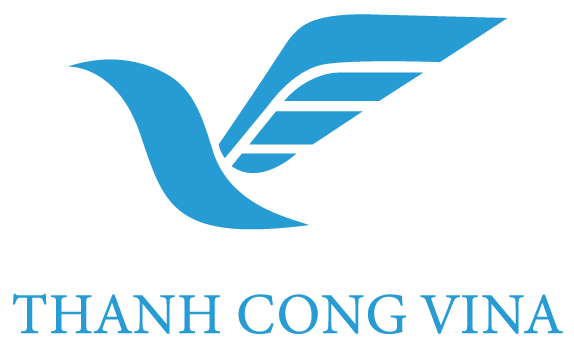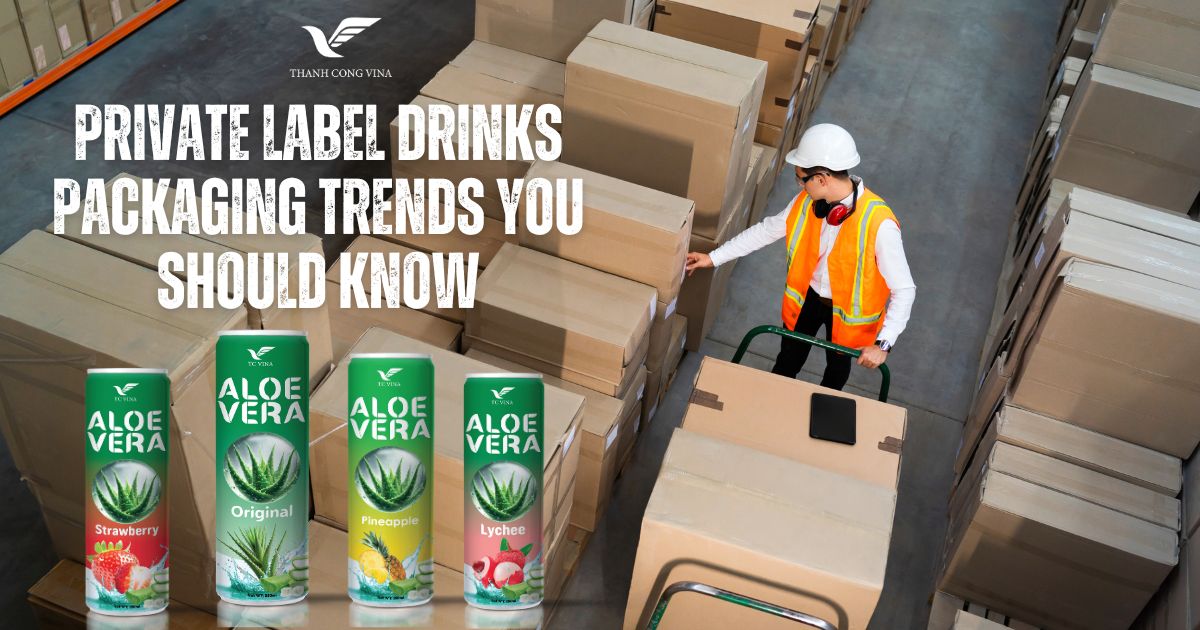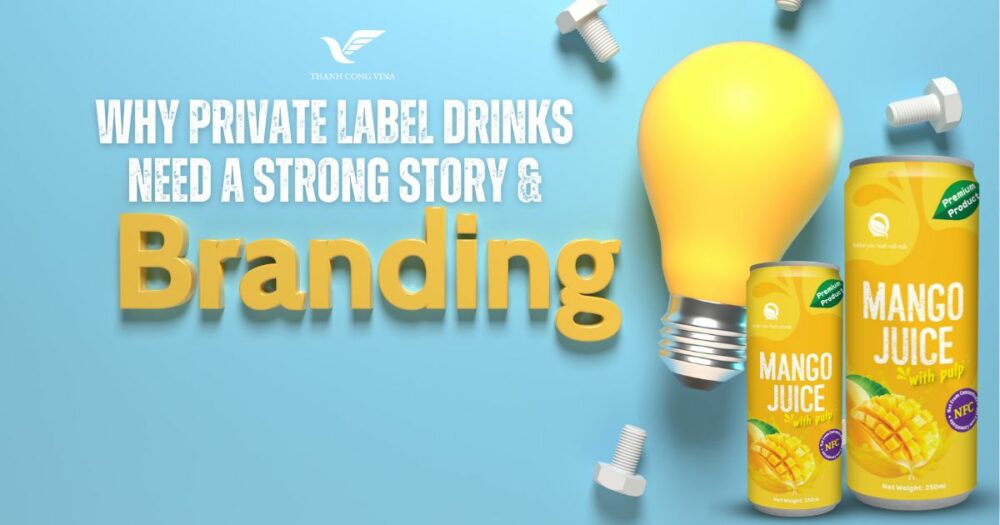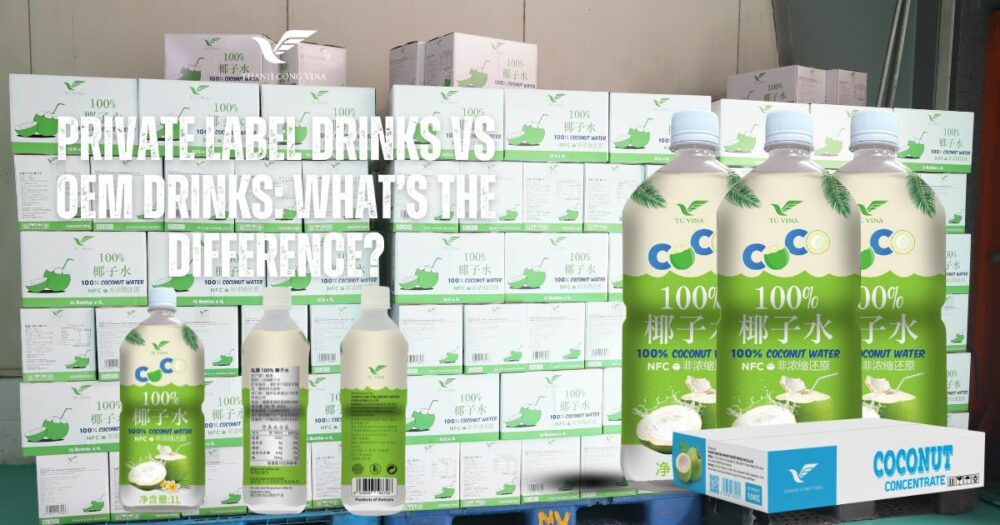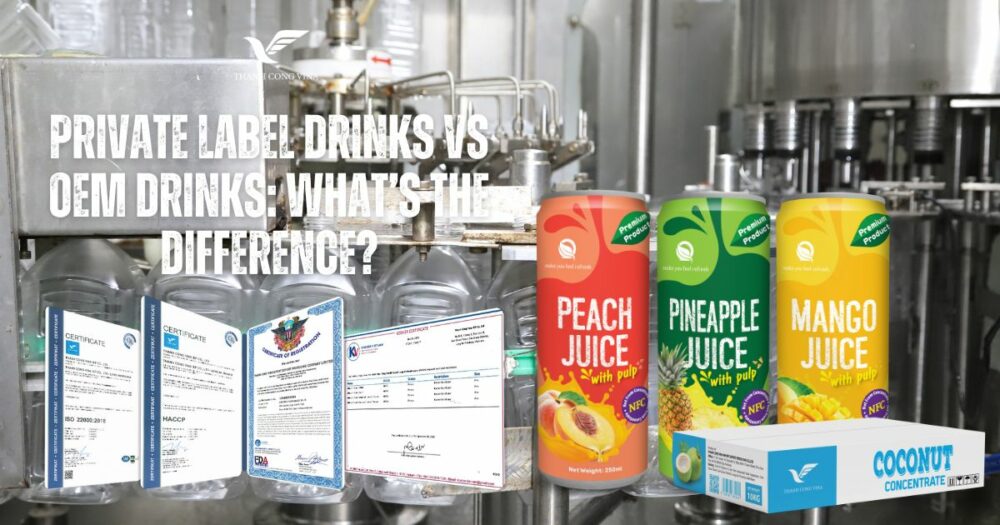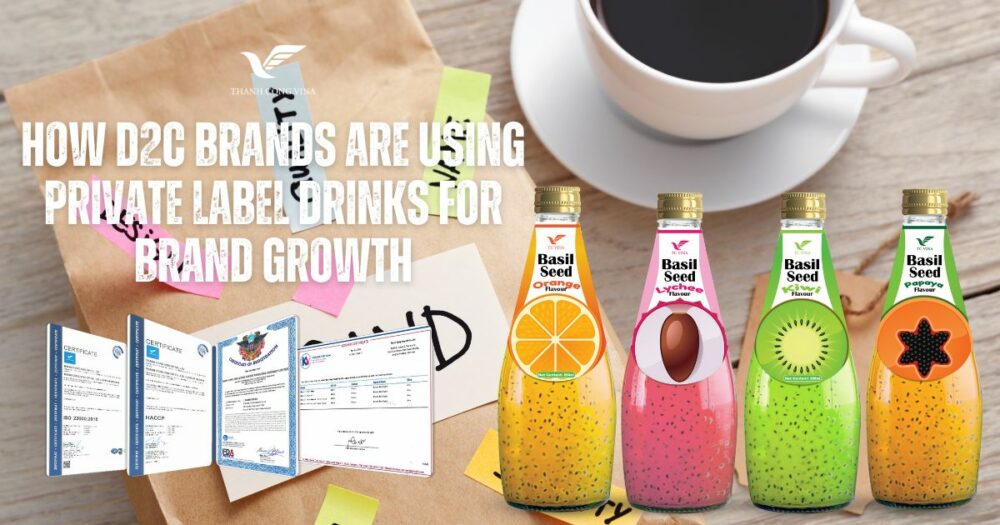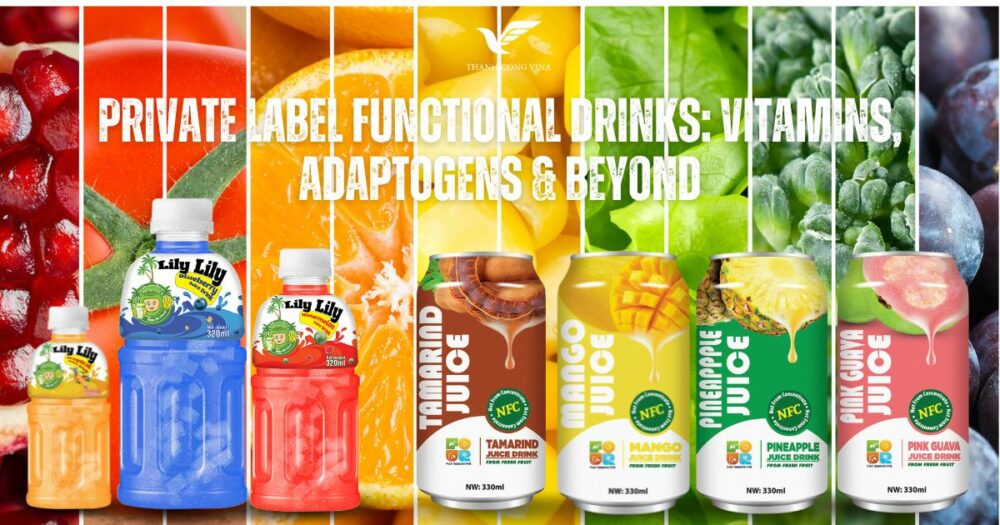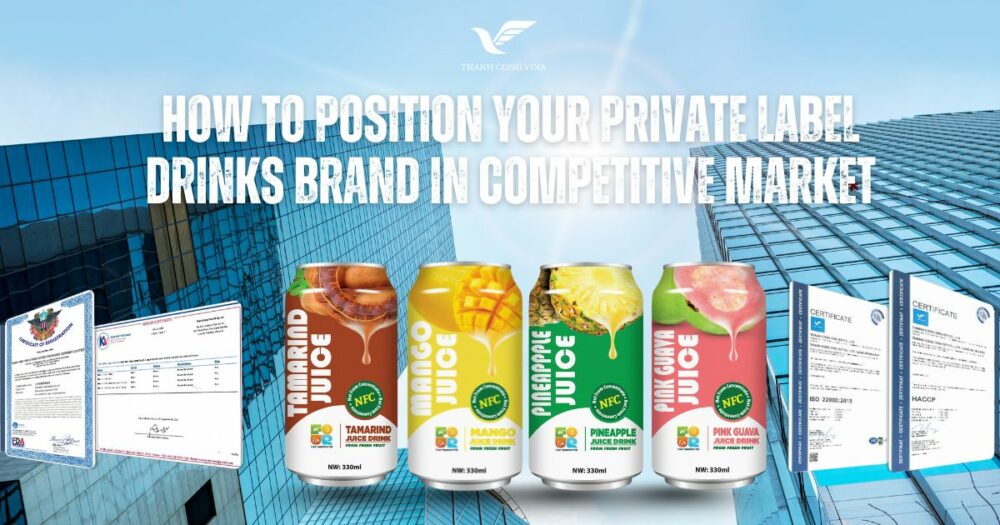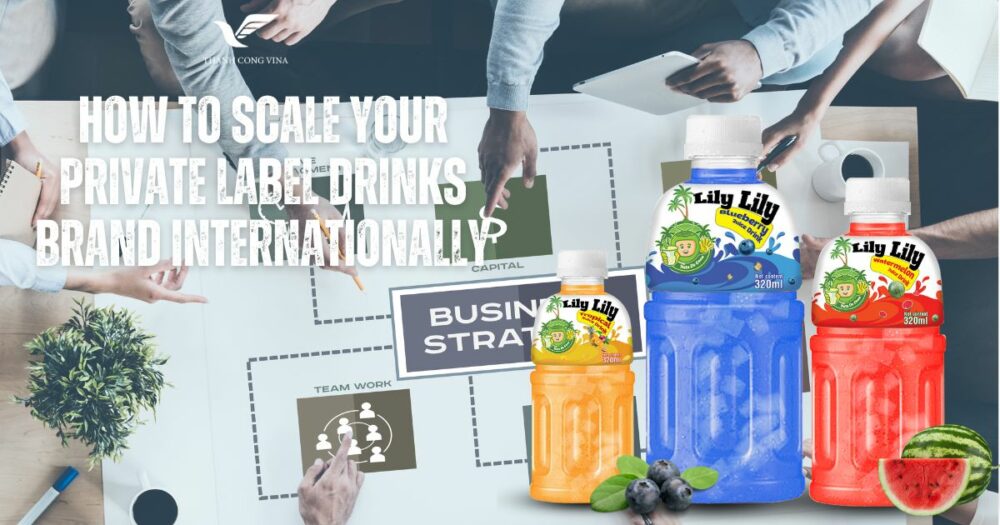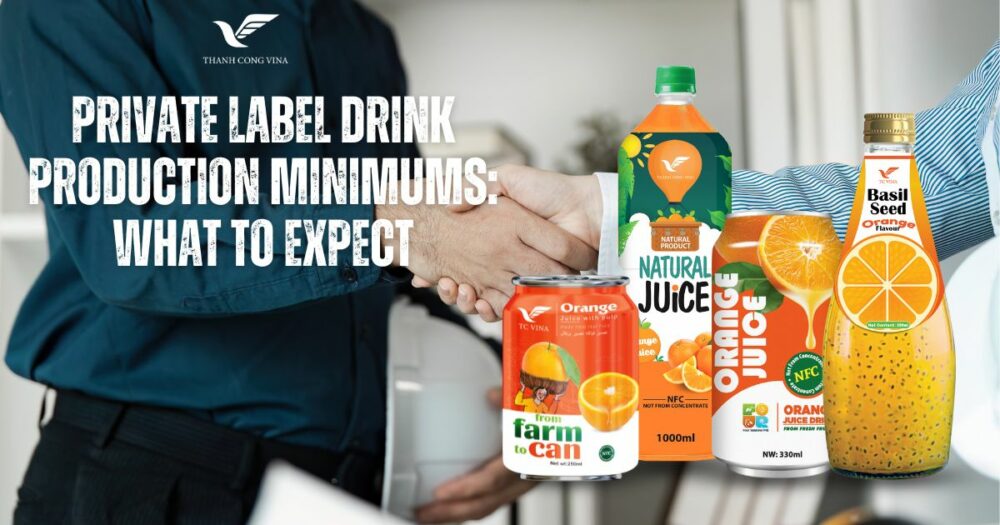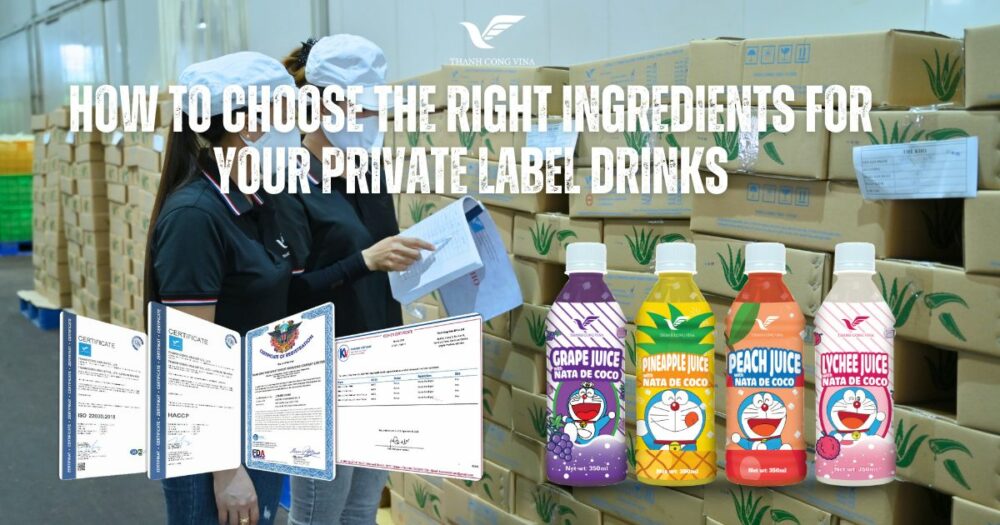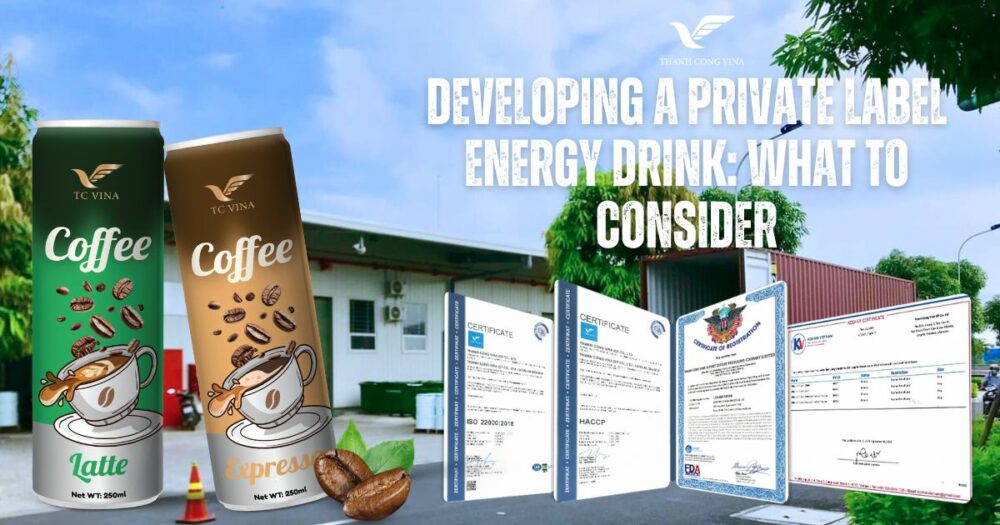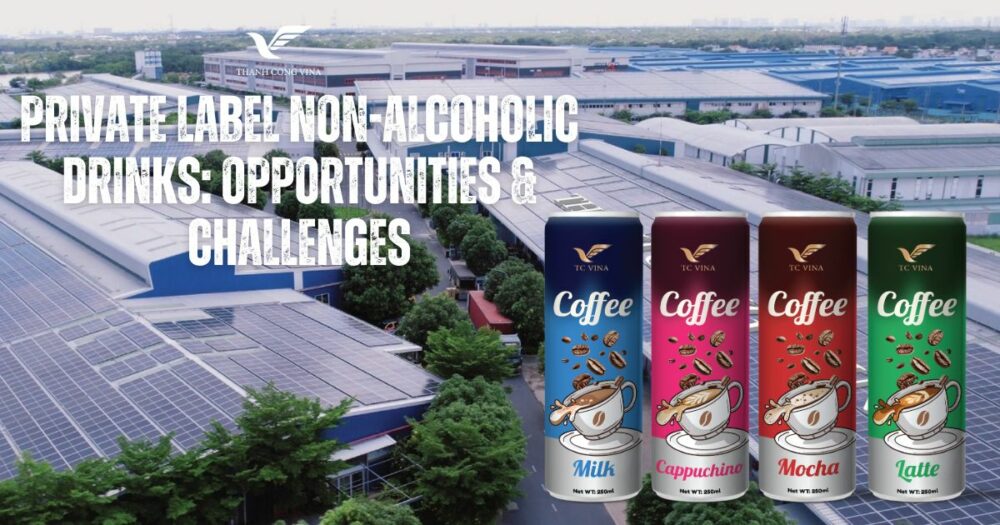The rapid growth of the beverage industry has made packaging an essential element in brand differentiation and customer experience. As competition intensifies, companies producing private label drinks are turning to innovative packaging designs to stand out on the shelf, improve product quality, and reduce environmental impact.
Packaging is no longer just a container; it has become a strategic tool that influences consumer perception, enhances convenience, and communicates brand value. For emerging beverage brands, retailers, and global distributors, understanding current packaging trends is crucial to staying relevant in an evolving marketplace.
This article explores the most important packaging trends shaping the private label drink sector today. From sustainable materials to smart packaging technologies, each trend opens new opportunities for cost efficiency, branding, and consumer engagement. Whether you are launching a new product or upgrading your existing beverage line, these insights will guide you toward future-ready packaging choices.
1. The Rising Influence of Sustainable Packaging in Private Label Drinks
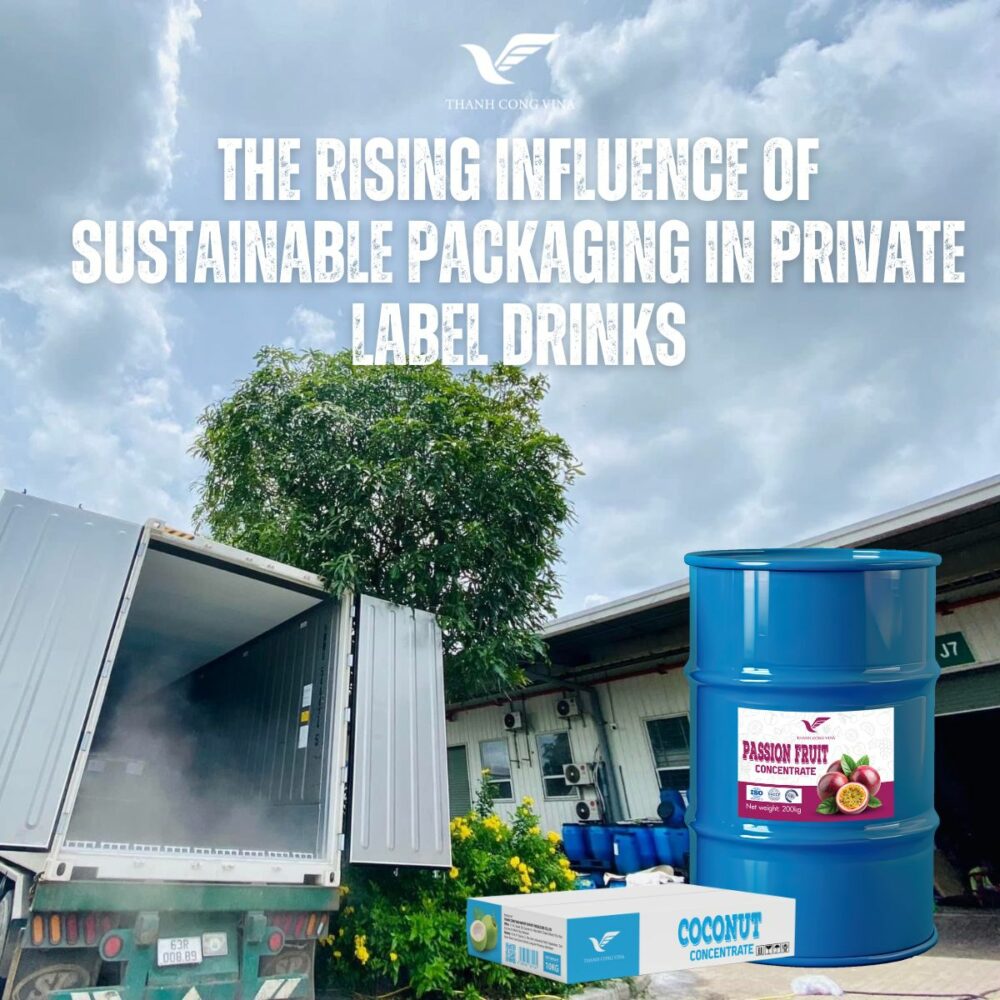
The Rising Influence of Sustainable Packaging in Private Label Drinks
Consumer Demand for Eco-Friendly Packaging
Sustainability has become a core priority among global consumers. Increasing environmental awareness, combined with regulatory pressures, has pushed beverage brands to adopt greener packaging materials. In the private label drinks sector, eco-friendly options such as biodegradable bottles, compostable labels, and plant-based plastics are no longer niche innovations—they are becoming mainstream expectations.
Consumers perceive sustainable packaging as a reflection of corporate responsibility, which helps private label brands gain trust and loyalty.
Recyclable and Lightweight Materials
Recyclable PET, aluminum cans, and glass bottles continue to dominate the beverage industry due to their low carbon footprint and efficient recyclability. Lightweight packaging has also gained traction because it reduces shipping costs and lowers emissions during transportation.
Private label drink manufacturers increasingly invest in lightweight bottle molds and thinner label films to achieve both sustainability goals and operational efficiency.
The Shift Towards Minimalist Design
Minimalist packaging is more than a visual trend—it’s a sustainability strategy. Brands are simplifying label graphics, reducing ink usage, and opting for clean, clear designs that communicate purity and transparency. For private label drinks, this approach helps convey freshness and natural quality while aligning with eco-conscious values.
2. Smart Packaging Technologies Transforming Private Label Drinks
QR Codes and Digital Traceability
Smart packaging integrates digital features that offer added value to consumers. QR codes, NFC tags, and digital watermarks create opportunities for transparency and engagement. By scanning a QR code, buyers can access information about ingredient sourcing, production processes, or authenticity verification.
Private label drinks benefit greatly from this innovation because it helps smaller brands compete with major beverage companies in terms of customer experience.
Shelf-Life Tracking and Freshness Indicators
Time-temperature indicators (TTIs) and smart labels are emerging as valuable tools for managing beverage freshness. These indicators change color when a product has experienced temperature abuse, allowing retailers and consumers to confirm product quality. For private label drinks requiring precise cold-chain management—such as functional beverages or probiotic drinks—smart indicators enhance safety and reduce waste.
Anti-Counterfeiting Features
Counterfeit beverages remain a challenge in some markets. Smart packaging technologies like UV-printed serial codes, hidden holograms, and blockchain-based authentication systems help protect product integrity. Private label brands adopting these features can differentiate themselves as trustworthy and premium-quality suppliers.
3. Customization and Personalization Trends in Private Label Drinks
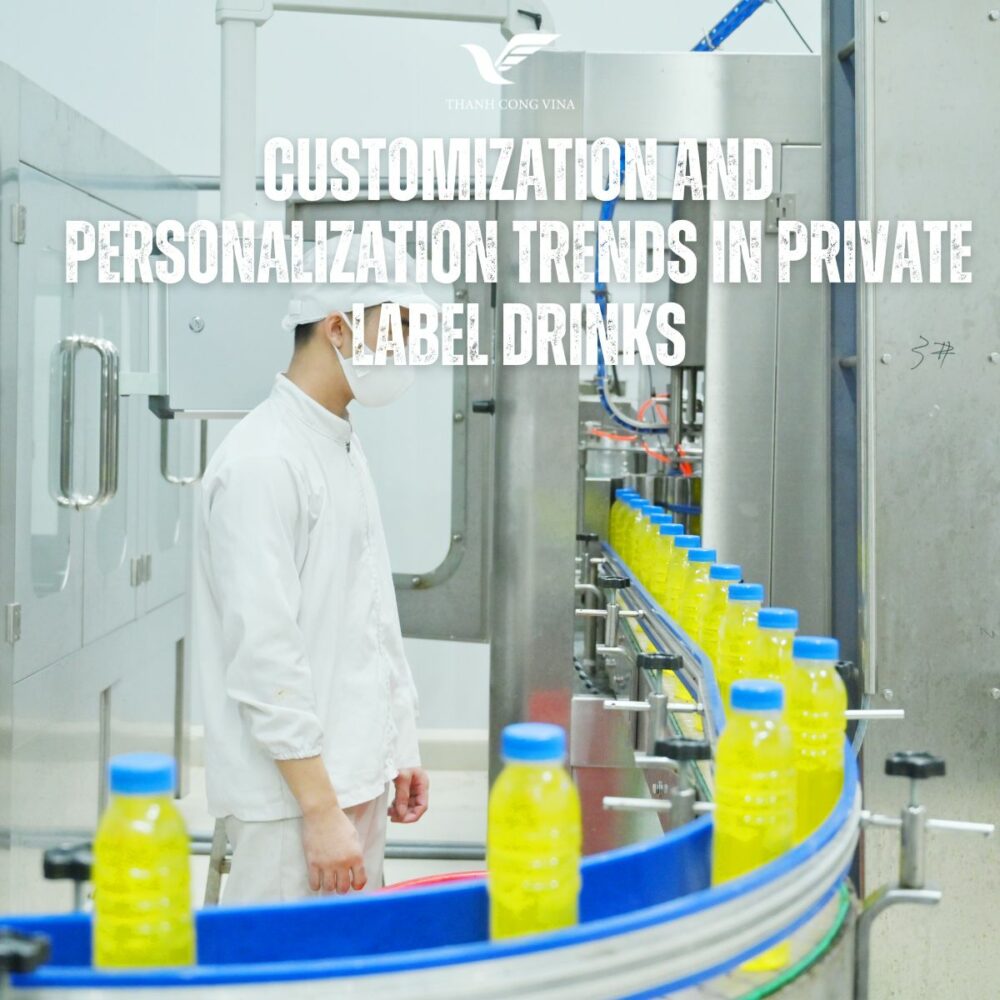
Customization and Personalization Trends in Private Label Drinks
Hyper-Personalized Labels and Limited Editions
Customization allows brands to tailor packaging to specific demographics, seasonal campaigns, or retail strategies. Private label drinks increasingly feature personalized labels with localized languages, cultural themes, or buyer names.
This approach boosts consumer connection and supports retailer-specific branding strategies.
Small-Batch and Micro-Batch Packaging Flexibility
To remain competitive, private label manufacturers must offer flexible packaging runs. Small-batch packaging enables brands to test new concepts, flavors, or label designs without significant financial risk.
Digital printing technology has made this flexibility more accessible, allowing companies to launch multiple variations at lower cost.
Co-Branding Through Packaging
Strategic partnerships between beverage companies and retailers often manifest through co-branded packaging. This trend strengthens product visibility and positions the drink as a premium offering. For private label drinks, co-branding offers an effective way to build trust while maintaining unique brand identity.
4. Functional and Convenience-Focused Packaging Innovations
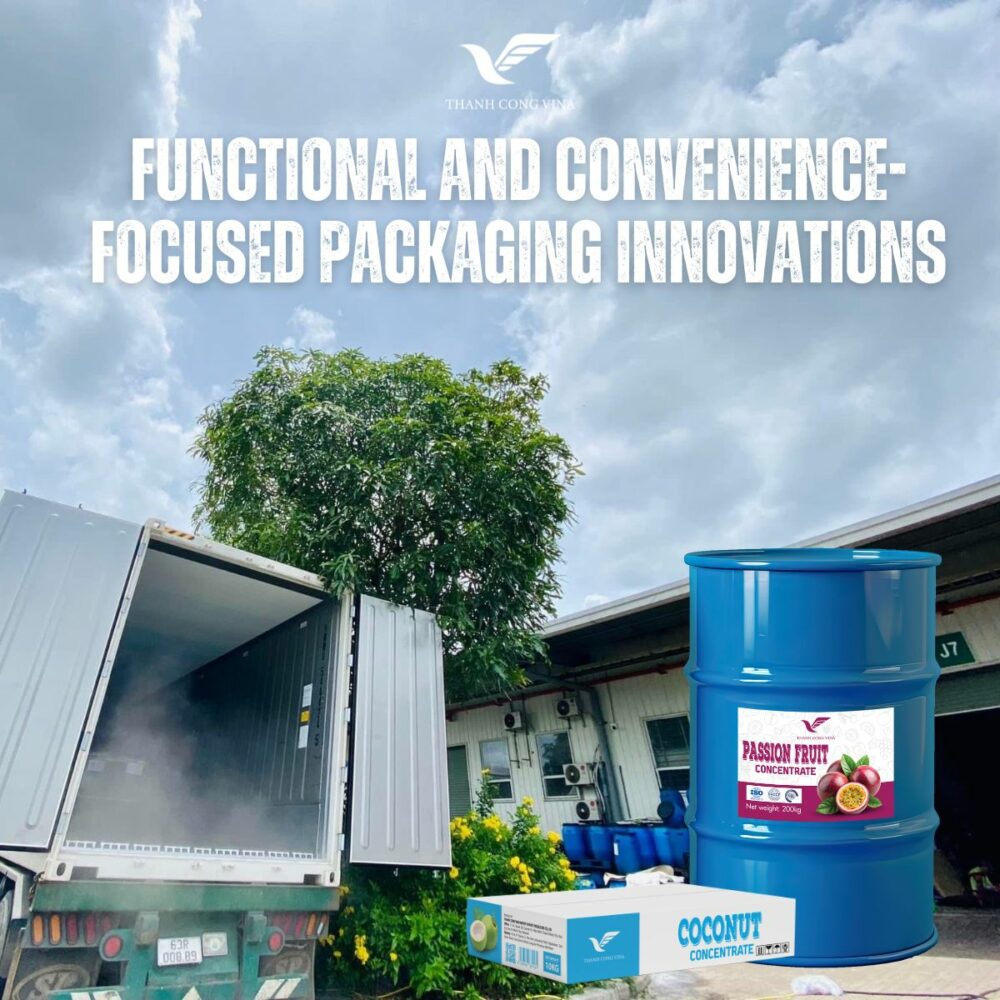
Functional and Convenience-Focused Packaging Innovations
Ergonomic Bottle Shapes and Easy-Grip Designs
Packaging has evolved to meet the convenience demands of active consumers. Ergonomic bottle shapes, slim cans, and redesigned caps enhance usability and on-the-go consumption. Private label drinks adopting these designs appeal to busy lifestyles and wellness-focused audiences.
Single-Serve and Portion-Control Packaging
Health-conscious consumers are drawn to beverages with clear portion control. Single-serve PET bottles, mini-sized cans, and sachets make it easier to track calorie intake and reduce waste.
For private label drinks, offering multiple size options broadens market reach and adds retail flexibility.
Resealable and Multi-Use Packaging Features
Resealable caps, spout pouches, and airtight lids extend product lifespan and improve consumer convenience. These innovations are especially relevant for beverages that may not be consumed in one sitting, such as smoothies, teas, or functional drinks.
5. Premiumization and Aesthetic Advancements in Beverage Packaging
Premium Packaging for Market Differentiation
Premiumization is a growing movement where brands elevate the look and feel of their packaging to create perceived value. Metallic finishes, embossed labels, matte textures, and gradient color tones make private label drinks appear more luxurious.
This strategy helps retailers position their private label beverages as competitive alternatives to established branded products.
Transparent Packaging and Ingredient Visibility
Consumers value transparency both figuratively and literally. Transparent bottles or windows on packaging allow buyers to see the drink’s natural color and texture. This clarity signals purity, freshness, and honesty—attributes that can boost a private label brand’s reputation.
Artistic and Design-Focused Labels
Bold typography, artistic illustrations, and storytelling-based labels are becoming increasingly popular. These designs create an identity that resonates emotionally with buyers and stands out in crowded retail spaces. Private label drink manufacturers now offer enhanced design services to help brands create compelling visual narratives.
6. Sustainable Operations and Cost Efficiency in Packaging Choices
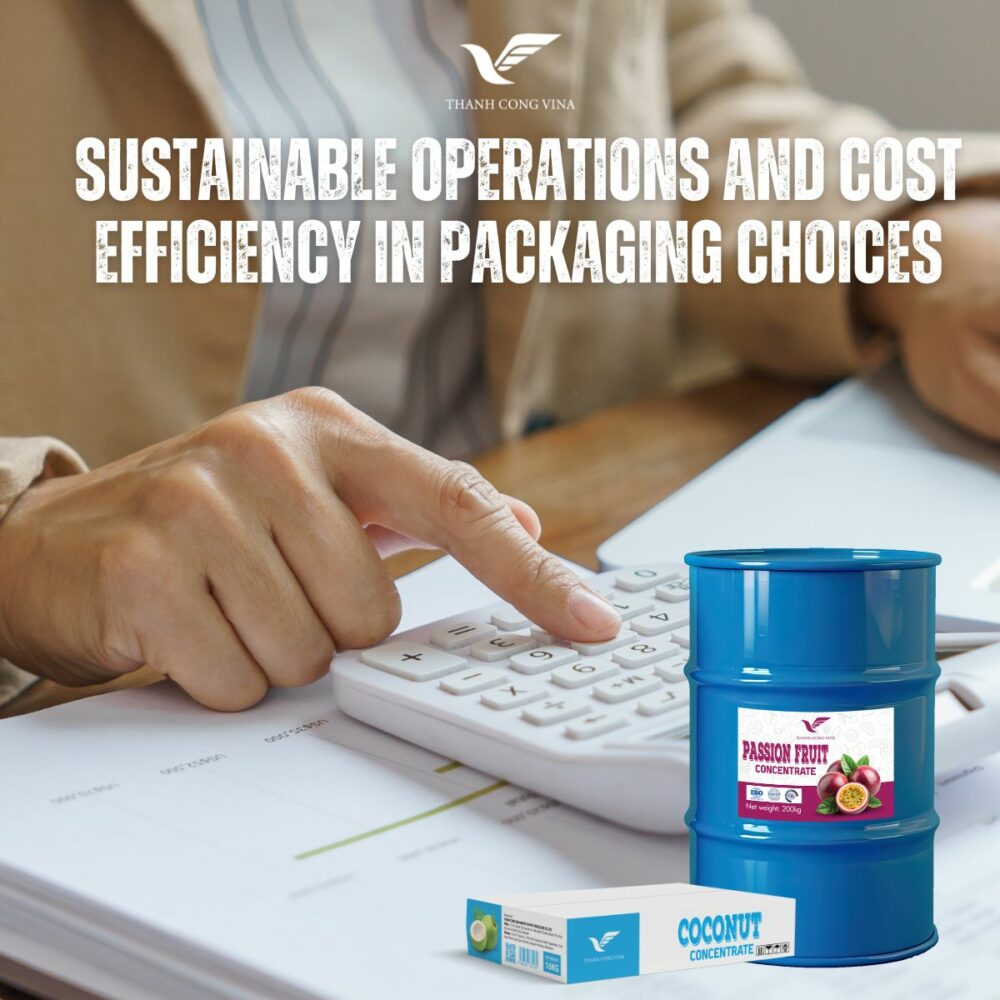
Sustainable Operations and Cost Efficiency in Packaging Choices
Cost-Effective Packaging Materials
While sustainability is important, cost efficiency remains critical for private label brands. Lightweight PET, paper-based cartons, and hybrid materials help reduce cost per unit while remaining environmentally responsible. Optimizing materials directly improves profitability without sacrificing packaging quality.
Efficient Production Lines and Automation
Modern beverage factories use automated filling, labeling, and packaging systems that improve accuracy and reduce labor costs. The integration of robotics and digital monitoring tools ensures consistent quality and enhances production efficiency.
These benefits extend directly to private label drink partners seeking cost-effective solutions.
Logistics Optimization Through Smarter Packaging
Packaging dimensions influence shipping costs. By redesigning bottle shapes, reducing excess material, or optimizing carton layouts, companies can transport more products per shipment. This strategy enhances sustainability while lowering operational expenses across the supply chain.
Conclusion
Packaging plays a critical role in the success of private label drinks, influencing consumer choice, product safety, branding, and overall profitability. As global demand shifts toward sustainable materials, functional designs, and digital innovation, brands must adapt their packaging strategies to remain competitive.
Modern packaging trends not only enhance shelf appeal but also improve logistics, reduce waste, and strengthen consumer trust.
For companies seeking a reliable manufacturing partner that understands the future of beverage packaging, Thanh Cong Vina Beverage offers high-quality, flexible, and internationally certified solutions for private label and OEM drink production. With advanced technology and strong industry expertise, Thanh Cong Vina IEP CO., LTD supports brands in bringing visually appealing, safe, and market-ready beverages to the global stage.
